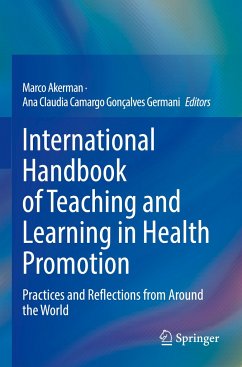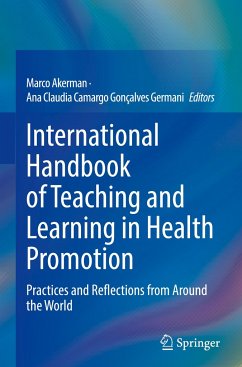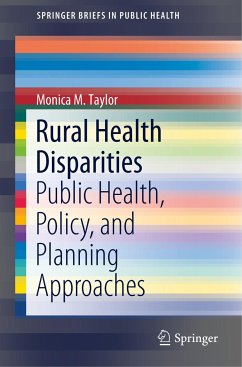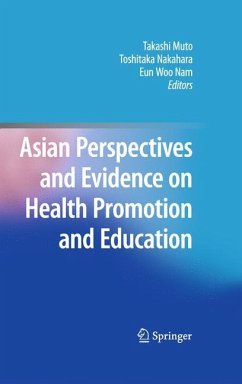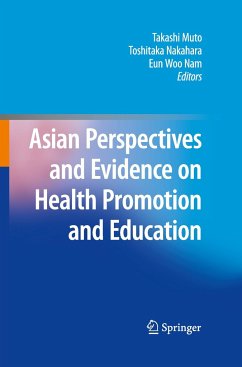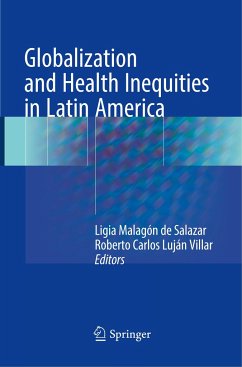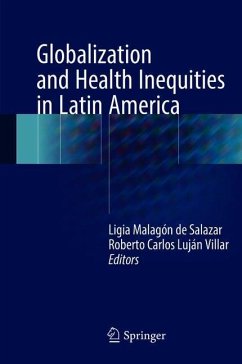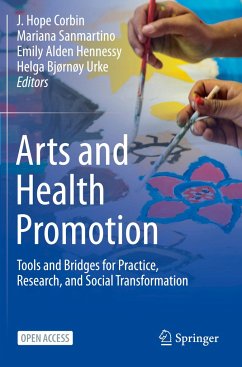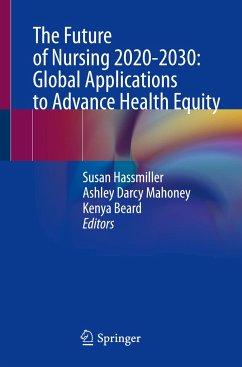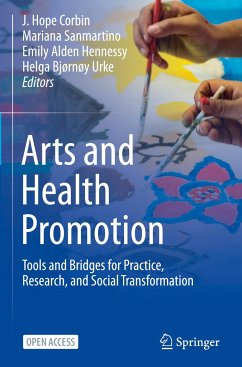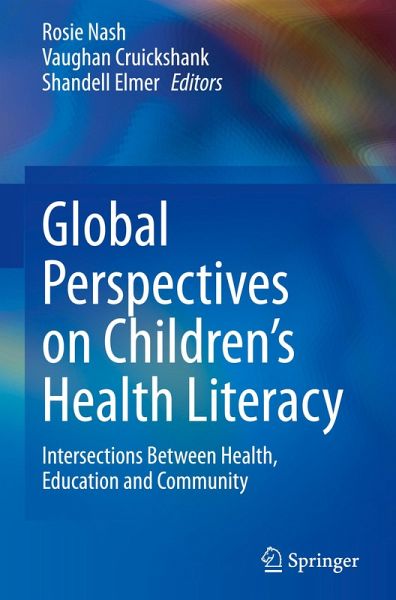
Global Perspectives on Children's Health Literacy
Intersections Between Health, Education and Community
Herausgegeben: Nash, Rosie; Cruickshank, Vaughan; Elmer, Shandell

PAYBACK Punkte
37 °P sammeln!
This book examines global perspectives of health literacy development to explore the intersections between health, education, and community settings. International health literacy experts provide a collection of important insights and recommendations that are urgently required to inform practice and policy. The impetus for this book is a growing recognition that a siloed approach to supporting health and health literacy exists in many countries. This book addresses a gap in the international literature by presenting solutions that promote ongoing collaboration across settings to redress inequi...
This book examines global perspectives of health literacy development to explore the intersections between health, education, and community settings. International health literacy experts provide a collection of important insights and recommendations that are urgently required to inform practice and policy. The impetus for this book is a growing recognition that a siloed approach to supporting health and health literacy exists in many countries. This book addresses a gap in the international literature by presenting solutions that promote ongoing collaboration across settings to redress inequity and optimize global health. Identifying intersections between the settings is critically important to supporting these collaborations.
Health literacy is the ability to find, use, evaluate and apply information to look after our health. Developing the personal asset of health literacy earlier in life influences adult health behaviours. A Health in All Policies approach has beenglobally endorsed; however, a health literacy in all settings approach is yet to be realised. As a social determinant of health, health literacy can determine health outcomes, educational attainment, social equity, and productivity. The authors investigate the health literacy development of children and their communities within particular regions, exploring whether health literacy is addressed as a health, education or community issue. They describe where silos exist between and within settings, aiming to highlight areas where health literacy is present. This helps identify challenges and opportunities for optimizing health literacy development.
Global Perspectives on Children's Health Literacy is essential reading for public health and health promotion researchers and practitioners, primordial prevention researchers, policy makers, health and education ministers, community service ministers, youth organisations, librarians, school teachers, health and physical education teachers, school nurses, child and parenting services nurses, paediatricians, and allied health professionals who work with children and families (e.g., social workers, speech pathologists, dietitians).
Health literacy is the ability to find, use, evaluate and apply information to look after our health. Developing the personal asset of health literacy earlier in life influences adult health behaviours. A Health in All Policies approach has beenglobally endorsed; however, a health literacy in all settings approach is yet to be realised. As a social determinant of health, health literacy can determine health outcomes, educational attainment, social equity, and productivity. The authors investigate the health literacy development of children and their communities within particular regions, exploring whether health literacy is addressed as a health, education or community issue. They describe where silos exist between and within settings, aiming to highlight areas where health literacy is present. This helps identify challenges and opportunities for optimizing health literacy development.
Global Perspectives on Children's Health Literacy is essential reading for public health and health promotion researchers and practitioners, primordial prevention researchers, policy makers, health and education ministers, community service ministers, youth organisations, librarians, school teachers, health and physical education teachers, school nurses, child and parenting services nurses, paediatricians, and allied health professionals who work with children and families (e.g., social workers, speech pathologists, dietitians).



